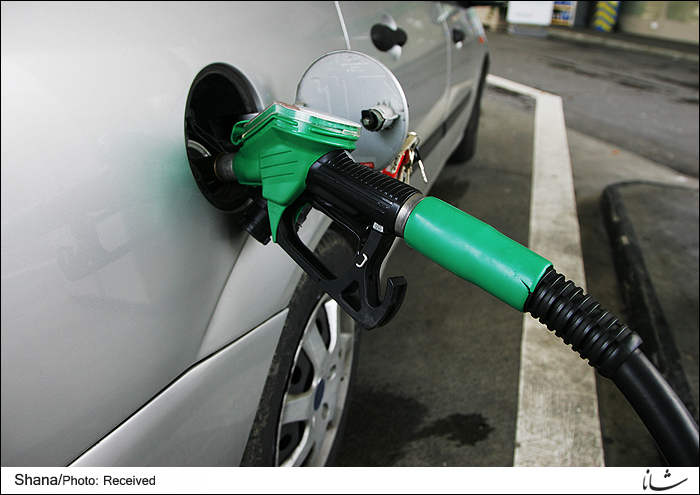Despite high pollution, the number of cars is increasing every day. However, little has been done for improving the fuel consumption technology applied to Iranian-made vehicles, according to the monthly Iran Petroleum.
The growing number of cars in Iran is a cause of air pollution. Furthermore, high fuel consumption by Iranian cars has been wasting away Iran’s oil.
As technology makes headway, cars are designed and manufactured with lower fuel consumption. Known as clean vehicles, these cars produce less pollution in the environment and are less harmful to the environment.
One of the objectives of the recently held conference on internal combustion engines was to acquire technology that would reduce fuel consumption and produce less pollution. This important achievement would not be possible without the cooperation of companies involved in this sector. Of course, it must be noted that with the implementation of Iran’s nuclear deal with world powers foreign companies would no longer face any restrictions for cooperation with their Iranian counterparts. Meantime, Iran’s young population and the number of cars are attractive points for potential investors and technology developers.
Post-Sanctions Cooperation
Germany’s AVL was one of companies present in the exhibition. AVL, a competent partner to the electrical train and automotive industry, develops all kinds of electrical train systems and simulation methods and tools for development. AVL products include instruments and systems for electrical train and vehicle testing. It is the largest privately owned company for the development of electrical train systems with internal combustion engines (ICEs) as well as instrumentation and test systems and also produces electric electrical trains.
Roger Wildeman, CEO of AVL, said the company has had office in Iran for decades, noting that his company has been cooperating with Iranian companies.
“Our main focus is on producing automotive systems for vehicles, locomotives and buses,” he said.
Addressing the inauguration, he said that AVL’s last cooperation with Iran is related to developing a fuel-efficient engine.
“For more than ten years, we have had close cooperation with Iranian companies,” he told "Iran Petroleum".
He said that the last joint project with Iran would be a three-cylinder engine with the capacity of one liter of fuel.
Wilderman said no precise figure could be forwarded as for the cost of production of these engines, adding that this company aims to produce engines at reasonable prices.
“AVLs target market is not only Iran. We intend to sell such an engine across the world. This trend is also very promising for Iran’s industry,” he said.
Wilderman also said that operation in Iran will become much easier after the removal of the sanctions. He said that banking transfers and other kinds of cooperation become possible.
“However, our company has never abandoned cooperation with Iran. We have always been present in Iran’s industry,” he said.
Wilderman said his company is currently investing in equipment, laboratory, technology and transfer of knowhow. “We have also invested in academic and company projects,” he said.
“In our view, some of these processes could be done more quickly. “In Iran, we have got very good engineers and the quality is also high. We forecast our project to go ahead at proper speed.”
He, however, said that manufacturing would take two to three years. He said this project will go ahead at a satisfactory speed if supported by the Iranian government and industry.
Wilderman said Iran needs fuel-efficient cars and clean vehicles, adding: “All specific problems of Tehran must be discussed completely. We need very clean engines for vehicles. Meantime, there are huge natural gas deposits here that could be used properly and we can develop technology for using this gas.”
Development of Activities
Another company present in the exhibition was FEV. Wolfgang Meier, a sales manager of FEV, said the company is an independent entity providing services and technology for internal combustion.
He said that FEV has been cooperating with Japanese and Chinese carmakers like Honda and Mitsubishi, German carmakers like Porsche, Daimler and Volkswagen, as well as a number of American manufacturers.
Meier referred to the last project his company has operated in Iran, saying: “This project is related to EF 7 engines incorporated in Samand. This company has so far operated eight projects in Iran and is currently in talks for future projects.”
“We have had many rounds of negotiations. Our company is not a manufacturer of engine, but is active for upgrading engines,” he said. “For instance, we upgrade their standards to euro-5 or euro-6. We can have good cooperation with Iran in this field.”
Asked about his assessment of FEV’s profitability in Iran’s market, Meier said: “We are here to negotiate. We have had talks, but we cannot reveal details because of the confidentiality of the negotiations.”
Regarding cooperation with Iranian companies, he said: “We are currently in talks for the development of different activities. In light of new regulations for air pollution reduction, I think that there would be potential for new and serious activities in Iran’s market.”
Investment Opportunities in Iran
The marketing manager of Britain’s engineering services company MPT was also presented in the exhibition. He was unwilling to talk to Iran Petroleum and he first examined the recorder. Reluctantly, he said that his company handles all engineering related activities from designing to development. His company was being represented at an event in Iran for the first time.
Regarding his company’s plan to get a share of Iran’s market, he said: “One very proper technology for Iran’s market is to reduce the size of engines in order to reduce fuel consumption.”
He said that Iran can be a good market for his company and that future projects would be related to hybrid engines.
Asked by "Iran Petroleum" about prospective cooperation between Iran and MPT on technology, the sales manager first smiled and then said: “The coming five years are very bright for us because many doors have been opened in this country for us.”


Your Comment